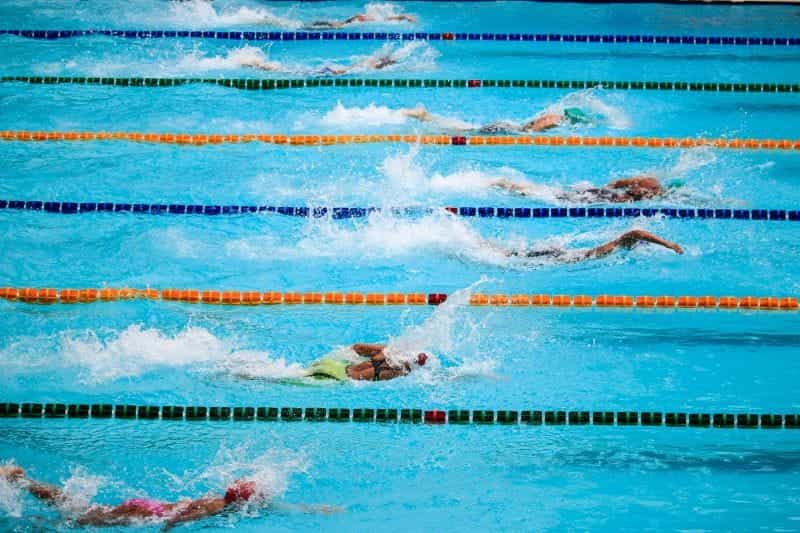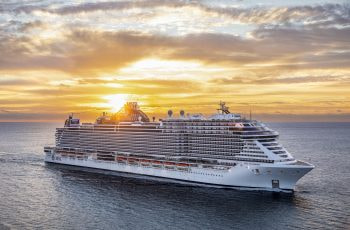Camelot Loses National Lottery License
The Gambling Commission has named Allwyn Entertainment as its preferred applicant for the fourth National Lottery license. The announcement means that after thirty years at the helm, Camelot will lose out on the upcoming license. Allwyn will take over the National Lottery in 2024, and has been granted the license for ten years. The European lottery giant has promised to overhaul the National Lottery, delivering growth and more funds to Good Causes.

In recent years the National Lottery has become a vital source of funding for Team GB Olympic and Paralympic athletes. ©Jim De Ramos/Pexels
Allwyn Committed to Investing
Incumbent operator Camelot has lost control of the National Lottery after 28 years. The Gambling Commission has announced the results of its fourth National Lottery license Competition, naming Allwyn as its preferred applicant. The news has come as a surprise to many, although Camelot has faced stronger competition this time around than during any of the previous license competitions.
According to the Gambling Commission, it received the highest number of applications for the latest competition than any ever before. It had been thought that Camelot was a favorite to win the license, after the Daily Telegraph reported that the Commission had already named Camelot in its recommendation to the Prime Minister.
The newspaper also claimed that Camelot had been awarded the highest score on judges’ scorecards. The Gambling Commission hit back at the Telegraph’s claims, describing the article as false and inaccurate. The paper was then forced to amend the contents of the article to include the regulator’s comments.
It seems that Allwyn was equally surprised to be named the competition’s winner, having launched a High Court challenge against the Gambling Commission just days ago. It has been reported that both Camelot and Allwyn have been lawyering up in case the competition did not go their way. It is therefore likely that Camelot will contest the Commission’s decision.
Camelot has however been named by the Commission as its reserve applicant, should Allwyn not be able to take up the license for some unforeseen reason. The other applicants to have lost out are Italian lottery operator Sisal, and business mogul Richard’s Desmond’s application via the New Lottery Company.
Revealing its top choice, the Gambling Commission cited Allwyn’s commitment to investing in the National Lottery as the key to its success. Its investment plan is expected to deliver growth and innovation across the lottery’s products and channels, leading to higher contributions to good causes.
Tough Competition
The UK’s National Lottery is one of the largest lotteries in the world. Since its launch in 1994, it has successfully raised more than £45 billion for 660,000 good causes up and down the UK. It has also been instrumental in providing funding and support for Great Britain’s Olympic and Paralympic athletes over the last three years. Announcing the results of the competition, Gambling Commission CEO Andrew Rhodes described the National Lottery as a great national asset, adding:
“I am confident that the success of the competition will lead to a highly successful fourth license – one that maximizes returns to good causes, promotes innovation, delivers against our statutory duties, and which ultimately protects the unique status of the National Lottery. We look forward to working with all parties to ensure a smooth handover.”
The Commission has thanked all four applicants for taking part in the competition, praising the overall high standard of submissions. Now that the winning applicant has been named, a legal standstill period will begin. It is set to last for at least ten days, and will be followed by a 22-month transition towards the fourth license.
The gambling watchdog has reassured critics that it is satisfied that all of the competition’s applicants are fit and proper to operate the National Lottery. It added that in its role as a responsible regulator, it is also reassured that no applications are impacted by sanctions related to the war in Ukraine.
Allwyn is the UK subsidiary of European lottery giant, Sazka. Owner of the operator, Czech businessman Karel Komárek, made his fortune in oil and gas after the fall of the Soviet Union. Komárek is one of the wealthiest Czech citizens and is thought to be worth around £5.9 billion.
In recent years he has sold off his interests within Russia, retaining a joint venture with Russian energy giant Gazprom in the Czech Republic. It has been reported that Komárek is in talks with the Czech government to nationalize the facility.
Knowledge and Experience
Allwyn, then known as Sazka, signaled its desire to run the National Lottery in late 2020. As the largest lottery operator in Europe, it was keen to seize the opportunity to add the UK to its list of operations. In preparation for its bid it launched Allwyn, an anglicized brand that would appeal more strongly to the public and to the Commission.
The name Allwyn is inspired by an Anglo-Saxon term, meaning friend or guardian. Split in two, the name sounds like “all win”, suggesting good fortune to lottery players. Allwyn recruited a top team to lead its application, with Sir Keith Mills as Bid Chair. Lord Sebastian Coe, who helped to oversee London’s bid for the 2012 Summer Olympics, also joined the board.
Allwyn has welcomed the Gambling Commission’s decision, and has committed to delivering on its comprehensive transition plan led by former Sainsbury’s CEO, Justin King. Allwyn will take over the lottery’s day-to-day operation on February 1st 2024. Speaking on behalf of the operator, Sir Keith Mills stated:
“The National Lottery is a national treasure and we are honored to have been chosen as its future custodian. With the Gambling Commission having put its trust in us, we can immediately start to enact our exciting plans to deliver The National Lottery back to the heart of our country.”
Allwyn says that it has brought on a team of local experts to collaborate with its European brands and share best practice operations, focusing particularly on how to improve draw-based games. The National Lottery is set to benefit from the European gambling giant’s breadth of expertise. The Commission’s choice will also act as a promising signal to other businesses in Europe that are interested in investing in Britain.



